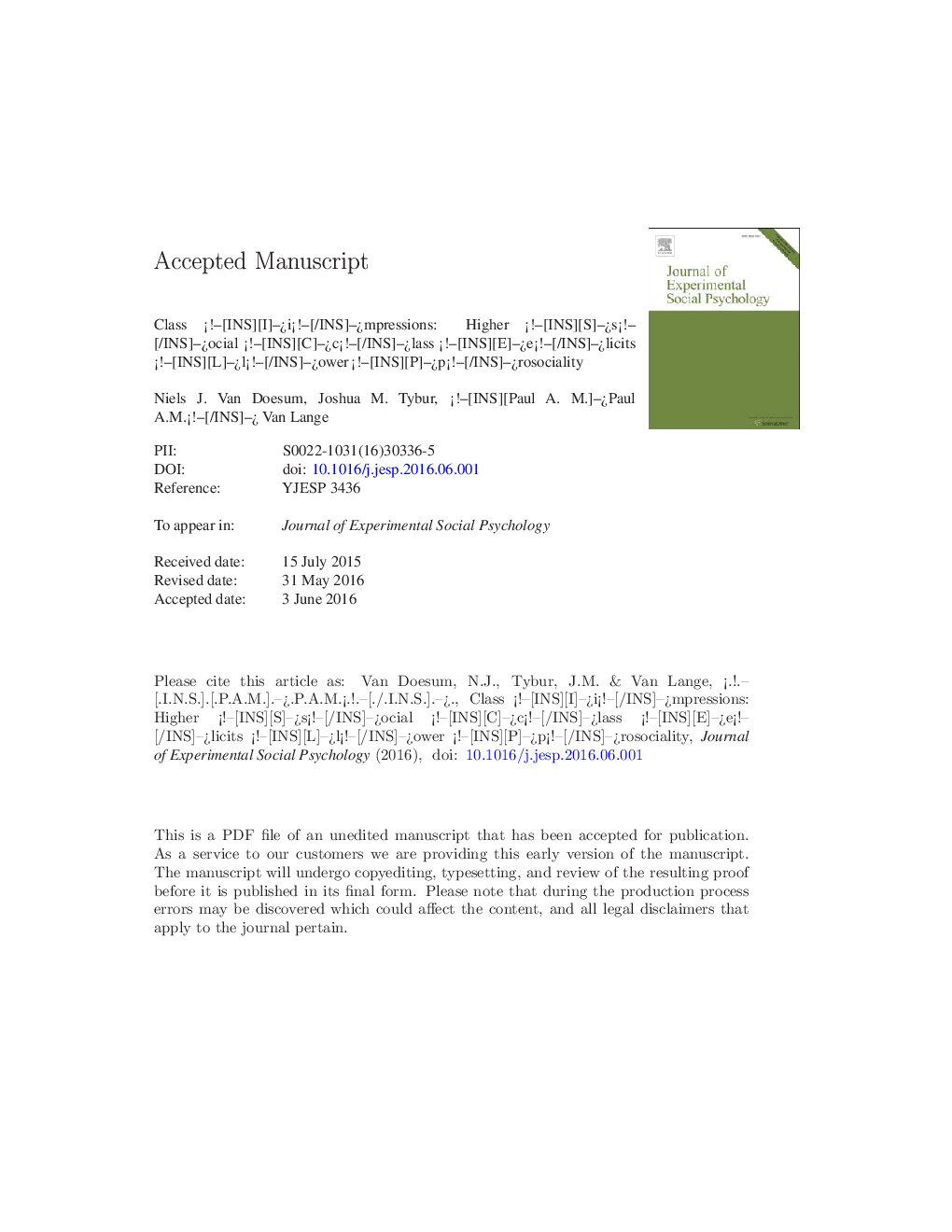| Article ID | Journal | Published Year | Pages | File Type |
|---|---|---|---|---|
| 7324351 | Journal of Experimental Social Psychology | 2017 | 45 Pages |
Abstract
Social class predicts numerous important life outcomes and social orientations. To date, literature has mainly examined how an individual's own class shapes interactions with others. But how prosocially do people treat others they perceive as coming from lower, middle, or higher social classes? Here, in addition to testing effects of self social class on prosocial behavior, we also investigate how target social class affects prosocial behavior, operationalized using a social mindfulness paradigm that focuses on leaving or limiting choice to others. We offer three lines of reasoning, predicting that lower class targets either elicit greater prosociality than higher class targets (fairness), that higher class targets elicit greater prosociality (status), or that people are most prosocial to targets from their own social class (similarity). Across four studies, we find that participants behave less prosocially (i.e., are less socially mindful) toward higher class targets relative to lower and/or middle class targets. Perceptions of similarity, warmth, and competence did not mediate lower prosociality for higher relative to lower class targets. Together, results are most consistent with a fairness perspective. Across all studies, we also found that self social class had little to no relationship with prosociality. In total, results suggest that social class is relevant for prosocial behavior, but that target social class matters more than self social class.
Related Topics
Life Sciences
Neuroscience
Behavioral Neuroscience
Authors
Niels J. Van Doesum, Joshua M. Tybur, Paul A.M. Van Lange,
